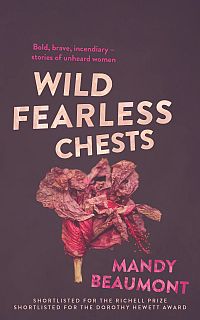The 26 January this year marked fifty years since the Beaumont children disappeared in Adelaide. This milestone provides an excellent opportunity to (re)assess how that event has been remembered, and the implications of this particular act of memory for Australian history.
Jane, Arnna and Grant Beaumont (all of whom were below the age of ten) travelled to Glenelg from their family home in nearby Somerton Park. They were unaccompanied by their parents. In one of the last-known sightings of the siblings, they were standing on Glenelg beach, speaking with a man whose identity is still publicly unknown. Despite an extensive and widely publicised police investigation, the Beaumont siblings have never been found.
One of the key tenets of historical studies is that memory is political. What and how we remember certain events speaks volumes not only about those events, but also about the sociohistorical spaces in which those events played out, as well as the spaces in which the events are remembered. How are memories of certain events shaped by, and what do they say about, social norms, e.g. those pertaining to race and gender?
I am most interested in the way that the Beaumont children’s disappearance has been framed as symbolic of national innocence lost. Two examples of this framing will suffice. In his 2011 book The Cruel City, Stephen Orr describes the year the children went missing in the following terms:
The year 1966 came just before many of the great upheavals in Australian society: kids weren’t rebelling (as much), LSD was an unknown acronym, we had only a few soldiers in Vietnam, fashion was still cotton, canvas and terylene netting, Chinese food was baby corn, cabbage and Keen’s curry, and everyone drove a Holden.
Alan Whiticker strikes a similarly nostalgic chord when he writes that ‘(l)ife was worry free and children felt safe in Adelaide during the early 1960s … You knew everyone in your street and everyone in the neighbourhood knew you.’ Whiticker describes the day the Beaumont siblings went missing as ‘the day Australia lost its national innocence.’
At first glance, the above passages could be dismissed as merely lazy prose (‘innocence lost’ is a notoriously hoary old cliché). A closer inspection, however, reveals a more troubling picture. To be specific, in these passages, innocence is linked with whiteness: pre-1966 Australia was predominantly white, we are led to believe, and this white Australia was (mostly) safe and cosy. More specifically, national innocence is here linked to white children. Children are our future, we are told – so surely it could not have boded well (at least in a symbolic sense) for the future of white Australia when three white children from an apparently loving, middle-class family went missing.
There are two key problems with this framing of the Beaumont children’s disappearance. Firstly, and perhaps most obviously, Australia has never been an entirely ‘white’ nation – though it has certainly had a white-colonialist history. Orr’s reference to Chinese food invokes the long and frequently controversial history of Asian migration to Australia. The siblings disappeared on 26 January, a date which has been euphemistically labelled ‘Australia Day’, and which has (especially in recent times) been celebrated by jingoistic revelry. In fact, that date commemorates the British colonisation of Australia in 1788, and the subsequent dispossession of Indigenous land.
Furthermore, for much of the twentieth century, so-called ‘half-breed’ Indigenous children were removed from their families and placed with white families. The aim of these removals was to ‘breed out’ Aboriginality and thus ensure the future of white Australia. The child removals in question would have been taking place in January 1966, when the Beaumont siblings went missing. Much has been written about the psychological pain endured by members of the ‘Stolen Generations’ and their families. Yet Stolen Generations children are rarely described as ‘innocent’.
The second problem with the abovementioned framing of the Beaumont children’s disappearance is that it dehumanises these children. The siblings are reduced to symbols of an imaginary yesteryear, a past that never was. The fact that the siblings were likely abducted and murdered is effectively glossed over.
Of course, in making that last point, I don’t wish to suggest that speculating about what may have happened to the children is necessarily helpful; it isn’t. A case in point is Whiticker’s 2013 book The Satin Man, in which he advances the theory that the Beaumont siblings were killed by a wealthy, cross-dressing Adelaide businessman with a domineering mother. At best, that book reads like a flight of fancy from someone who’s watched too many re-runs of Psycho. At worst, Whiticker’s text comes across as a cynical attempt to profit from the siblings’ misfortune.
Furthermore, I understand that viewing the past through the prism of the innocent (white) child has had a certain affective power, at least for some people. Cultural theorist Joanne Faulkner has written: ‘Innocence is nothing but the adult fantasy of life without stress or disenchantment.’ Faulkner’s words are borne out by a handful of (white) folk who grew up in Australia around the time the Beaumont children disappeared, and with whom I have discussed this case. These folk all recalled a more ‘innocent’ Australia, one that was a site of untrammelled safety and happiness – or at least it was prior to that hot January day in 1966. Yet when I challenged their perspectives, they all admitted that yes, pre-1966 Australian life was surely far less rosy than they remembered.
All of this being said, though, remembering the Beaumont children’s disappearance as symbolising the loss of an idyllic (and non-existent) white Australia is deeply problematic. This act of memory does a grave disservice to the siblings, as well as anyone who values a nuanced perspective on Australian history.
—






